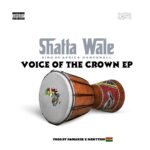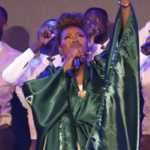Over the last few days, members of Shatta Movement have been doing their best “Sergio Ramos” impression over recent happenings surrounding their artist, Shatta Wale. The self-acclaimed “African Dancehall King” is one of Ghana’s most celebrated artists with a huge following. His success as an artist has been marred by numerous controversies from time to time with his most recent resulting in a heated discussion on music X (Twitter) regarding catalogue sales and IP(Intellectual Property).
In the early hours of Tuesday morning, August 19, 2025, Ghanaian multi-award-winning M.O.G Beatz took to social media to accuse Shatta Wale of IP infringement, stating that Shatta had sold his catalogue to a music company without doing right by him. M.O.G was the producer behind some of the songs he sold in the deal with Waka Music LTD.
This article is not here to be a judge of the issue between the two but touches on the conversation of catalogues and how its sales and acquisition are not a bad practice or one that started today. Reading through the comments on Tuesday, there seems to be a lot of ignorance and misinformation surrounding catalogue sales and the intentions behind them.

For context, a catalogue sale is when an artist or their estate sells the rights of their songs and compositions to a buyer, which are mostly labels or other music companies that exploit the catalogue in one way or the other. It must be noted that catalogue sales are often sold for huge sums of money based on the valuation of the catalogue in question. The valuation of a catalogue is not necessarily tied to the number of songs a person has, but to the value of the artist or the number of songs in discussion. So someone with 10 albums could sell their catalogue for less than someone with 3 albums. The terms of the sale are determined and negotiated by the buying party and the selling party, so every sale may not be the same as the next.
Contrary to what is being said on social media, catalogue sales are not a practice that started recently or a direct cause of struggling finances on the part of the selling party. This writer believes that catalogue selling is essentially about who stands the best to exploit the material the most. So when an artist meets a buying party that can best exploit their creation, they are open to selling their art to maximise its exploitation.
In other instances, catalogues are sold to raise capital for other forms of investment. Pursuing a career in music does not come cheap, and anyone who wants to hit a certain level needs to make a level of investment which the artist may not always have. Hence, some artists sell parts of their catalogue to raise funds to reinvest in the next phase of their career.

Truth is, the practice is a well-known industry practice that is not even new to Ghana. An article published by Bolero Music lists a number of big catalogue buys over the last couple of years around the world. In Ghana’s case, it is just a lack of information that has resulted in people being surprised that Ghanaian artists are doing this. It is worth mentioning that sales agreements may have instances where artists may not have to sell the actual song but a rendition of the song, as seen in the case of Sarkodie, who has been reported to have sold a live rendition of his songs recorded during the last rapperholic event to the same Waka Music LTD. There are also instances where artists are allowed to buy back their catalogue at an agreed fee during the initial sales period.
What makes this Shatta – MOG case even more interesting is not just the revelation of catalogue sales but the alleged infringement of MOG’s IP. Conversations and education regarding IP have become an integral part of music business discourse in recent times for an artist of Shatta’s status to do what he has been accused of doing. However, while the matter is being handled behind the scenes, it highlights an important aspect of catalogue sales: ensuring that all right-holders are involved and informed about what is being done.

A song has different components with a lot of players at play. There are very few cases where an individual owns 100% of the rights to a song. In every other situation, all right holders must be duly informed and compensated to allow the sale of the catalogue to go through smoothly. Shatta may be the one who is being accused of this at this moment, but there are hundreds of cases like that which have been buried or are currently ongoing behind the scenes. One thing this Shatta-MOG situation brings is an opportunity to have a holistic conversation on catalogue sales and hopefully get real-time experiences as the situation develops with time.
At the end of the day, sales of catalogues are going to become more interesting and lucrative over time, and it is imperative that all parties involved are aware of the factors that come into play when a catalogue is being sold.































